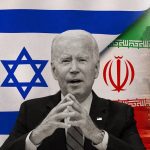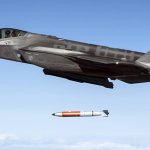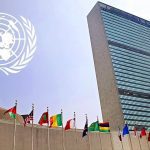Nigeria, Africa’s most populous country and largest economy and oil producer, held presidential elections on 25 February 2023. Incumbent President Muhammadu Buhari, who has completed his second four-year consecutive term, the maximum allowed, is ineligible to run for re-election, in light of the need to prioritize justice in cases of electoral violence and address security concerns.
The failure of the Nigerian authorities to address accountability for violations related to the previous elections in 2019, actions of electoral violence and widespread insecurity across the country threaten the safety of holding these elections. Yet, the biggest fear is that the electoral process is facing threats from various sides.
Members of the National Assembly will be elected on the same day, and governors and state legislators on 11 March 2023. These elections will be different from previous opinion polls, posing new challenges. It will be the first time in the 63 years of Nigeria’s independence that Nigeria has secured three consecutive peaceful transitions of power, an important indicator of the gradual consolidation of the path of democracy since 1999.
Presidential and parliamentary elections are held separately but simultaneously, with the participation of 18 parties, after the Independent National Electoral Commission (INEC), the electoral body responsible for conducting elections in Nigeria, canceled the registration of 74 others in 2020 as they did not meet the criteria set out in the constitution. The candidate who will win the presidential race will be sworn in on 29 May 2023.
Legal and Procedural Frameworks of Nigeria’s Elections
The voter registration process involves obtaining the voter’s personal data, as well as photos and fingerprints. After the registration process, INEC issues the Permanent Voter Card (PVC) to eligible voters. This card serves as proof of voter registration and guarantee of participation in the elections. Once voter registration is complete, INEC nominates candidates. Presidential and National Assembly candidates are nominated by political parties, while State Council and Governors candidates are nominated by their respective political parties.
The INEC then vets the candidates for constitutional requirements for office. This is followed by the period of candidates’ campaigns, rallies and public appearances to mobilize electoral votes, closely monitored by INEC to ensure a peaceful and orderly manner. Voting and the establishment of voting units on election day take place across the country, and voters are required to present their ballots at the polling station to vote. Voters are given the option to vote for the presidential candidate of their choice, as well as the candidate for the National Assembly, the State Assembly, and positions of governor in their constituencies.
After voting closes, voting unit results are collected and compared at the district, local and state levels. The results are then sent to the INEC headquarters for final comparison and results announcement. INEC is responsible for announcing the results of the election, and the candidate with the majority of votes wins. According to the country’s constitution, the candidate with the most votes and who also receives at least 25 percent of the vote in two-thirds of Nigeria’s 36 states will be declared winner. If no candidate meets this threshold, the two candidates with the highest votes will compete in a second round of voting within 3 weeks.
In the event of a dispute, candidates have the right to petition the electoral tribunals to challenge the results of the election. Courts were established by INEC and are responsible for hearing and adjudicating electoral disputes. Courts decisions are final and binding, and can only be appealed to the Supreme Court in respect of legal issues.
Leading Candidates in the Presidential Election
There are 3 candidates with real chances of winning from the main parties in Nigeria’s political scene: Bola Tinubu, representative of the ruling All Progressives Congress (APC) Party; Atiku Abubakar, representative of the main opposition People’s Democratic Party (PDP); and Peter Obe, representative of the Labour Party. Each expresses their electoral agenda according to their political and social background, as follows:
Bola Tinubu: The former governor of Lagos representing APC party, is widely regarded as a winning candidate. He is a veteran politician with 21 ruling party governors who can make his case locally. Nevertheless, he faces significant challenges. He must find ways to distance himself from the unpopular President Buhari without alienating the president’s supporters. Tinubu is also battling rumors that he suffers from a neurological disorder that can affect his speech, although he denies it.
Atiku Abubakar represents the leading opposition PDP. He also served as Vice to President Olusegun Obasanjo from 1999 to 2007, but failed in five previous attempts to win the top job. He presented himself as a unifier in a country polarized by regional, religious and ethnic divisions. His biggest advantage seems to be that he shares a cultural and religious identity with voters in the Muslim states of Northeast and Northwest Nigeria, accounting for nearly 40 percent of Nigeria’s 96 million registered voters.
Peter Obi, a businessman, represents the Labour Party which remains outside Nigeria’s traditional political elite, where the two leading candidates, Tinubu and Atiku, do not present specific ideological agendas, allowing Obi to choose between them among the old political tribes about who controls the largest share of the country’s wealth.
Obi’s biggest challenge will be convincing enough voters that the outside can win. In fact, Obi served as Atiku’s vice president in 2019 and was a member of Atiku’s party until 2022. Obi is also the only leading Christian candidate, with strong political support from churches across the country. However, some voters may fear that a party with few seats in the legislature and few well-established ties to the country’s governors will not be able to achieve much.
In the context of polling models and electoral prediction, there is a prediction that Obi may win the presidential election in a poll conducted by Bloomberg Media in New York. According to the poll, collected from 2,384 Nigerians from 26 January to 4 February 2023 via a smartphone application, Tinubu of the ruling APC party will come in second place by a wide margin, while Atiku of PDP will occupy third place. Fitch Solutions Country Risk and Industry Research also predicted that Tinubu would win, and the report released by Fitch on 1 February 2023 did not rule out the possibility of a run-off.
Obi of the Labour Party is still expected to win the 2023 election, according to a new poll by ANAP showing significant progress. Rabiu Musa Kwankwaso of the New Nigerian People’s Party (NNPP) and former Governor of Kano State emerged in fourth place. As predicted by the American National Democratic Institute (NDI) and the International Republican Institute (IRI), a run-off will be held with the emergence of the Kwankwaso as a major candidate in the election race.
Factors Affecting Voting Trends
Elections in Nigeria are not just about politics; religion, race and origin play an important role and this is reflected on voter preferences and the spread of disinformation used to delegitimize institutions and candidates, thus challenging their legitimacy before citizens. INEC is one of the most targeted institutions. The repercussions of high tensions between the three main parties have led to increased tensions across the country. The ethnic, religious and regional identities of candidates have also provoked a sharp polarization of voters, which can be explained as follows:
Ethnicity and regionalism: Four of the 18 presidential candidates are from the country’s three dominant ethnic groups: Hausa/Fulani, Yoruba and Igbo. From the north are Atiku, and Kwankwaso. Since the 1999 elections, there has been an unwritten agreement that presidential power will rotate every eight years between the northern and southern parts of the country. That is why many individuals and groups from the north and south insist that President Buhari should be succeeded by someone from the south. Others from the southeast argue that since the region has not yet produced a president, it should get its turn in 2023. While others from the northeast equally argue that it should be their turn because the region has not produced a national president since Abubakar Tafawa Balewa, the country’s first and only prime minister during the 1960s.
Religious affiliations: These have always been important tools of mobilization and discord in Nigeria since 1999. There has also been a careful balancing procedure to ensure that the President and Vice do not share the same religion. While Muslims are predominant in the north, the south is predominantly Christian. This balance was upset when presidential candidate Tinubu, a Yoruba Muslim, chose Kashim Shettima, a Kanuri Muslim and former governor of Borno State, as his vice president, and many Nigerians and groups, including Christian Society of Nigeria condemned this choice.
The emergence of third parties in the political scene: Until 2015, the scene was dominated by one party, the PDP, which was the only party with the power to win the presidential election. This changed with the emergence of the Labour Party and NNPP, changing electoral dynamics. Obi frames his campaign on counter-rhetoric and is thus able to attract and mobilize frustrated young voters. As the only Christian among the 4 leading candidates, Obi may also benefit electorally from APC Christian opponents.
Reform Steps Ensuring Peaceful Elections
Nigeria’s democracy faces a critical test, as these elections differ from the previous 6 elections since Nigeria’s transition from military to civilian rule in 1999. It will include the largest election in the country’s history and the most youth-voters. Holding peaceful elections is critical to the winner’s ability to govern and stabilize the country. It will also enhance Nigeria’s credibility in opposing coups in Africa. However, levels of electoral violence are rising, and Nigeria’s federal state governments, security agencies, electoral management agency, political parties and international partners need to work to mitigate violence by punishing perpetrators, enhancing election security, defusing inter-party tensions, and ensuring election credibility.
Nigerian electoral authorities have taken steps to protect the integrity of the voting process. More than 90 million Nigerians are eligible to vote in 2023, compared to 84 million in 2019. To improve voting legitimacy, INEC is rolling out technological innovations to boost voters’ confidence in the credibility of elections. Nigeria’s recently enacted electoral law has also improved the electoral process, reflected in the addition of 12.29 million new voters to Nigeria’s voter registration process across 36 federal states and 1,491 constituencies. President Muhammadu Buhari has also shown greater respect for INEC than some presidents have shown in the past. The establishment of the Electoral Crimes Commission is an important step towards mitigating electoral violence and reducing impunity, It includes several laws, such as the Public Order Act, the Nigerian Police Act, and the Election Law of 2022 that introduced innovations such as electronic transmission of results from polling stations, the voter accreditation system, and curbing fraud policies. As of August 2022, courts had issued only 6 convictions in 125 electoral violence cases filed since 2015.
Despite these, there have been incidents of electoral violence, with more than 50 cases reported in the first month after the start of electoral campaigns on 28 September 2022, including attacks on INEC offices. The risk is likely higher in 6 states; Lagos, Rivers, Kano, Kaduna, Ebony, and Imo. Lagos State is important because it has the largest number of registered voters in all states. Rivers State, which has considerable political and economic weight, also has the largest number of voters in the Niger Delta and the southern region. Kano State in the north has the second largest voter among Nigerian states, and there is a north-south divide in Kaduna State. The Peoples Democratic Party has long controlled the government of Ebony state in the southeast. In the same area is the state of Imo, which is the scene of intense party rivalry.
Multiple Challenges
Nigeria is at a critical juncture, suffering two recessions in the past 6 years, unprecedented levels of food insecurity, persistent fuel scarcity, and high levels of crude oil theft, with rising crime levels in the northwestern and central states, in addition to separatist tensions in the southeast. Kidnapping has become a major problem with criminal gangs and bandits carrying out mass kidnappings specifically in the northwest. Therefore, the process of holding elections is subject to many challenges such as violence, fraud, politicization and insecurity, as follows:
Deteriorating economic and social conditions: The economy is still recovering from the COVID-19 shock which caused the country’s second recession in just 5 years. Inflation reached 21.5 percent at the end of 2022, and the unemployment rate was 33 percent for all adults and 42.5 percent for youth. About 40 percent of the country’s 221 million people live below the poverty line according to the World Bank in March 2022. Many Nigerians, especially in the north of the country, lack access to education, basic infrastructure such as electricity and safe drinking water, and improved sanitation system. The value of the Nigerian currency (Naira) also depreciated in 2022 due to oil theft, a chronic problem in southern Nigeria, which led to a decline in the country’s oil exports. These in addition to car fuel shortages in much of the country since late 2022 and a scarcity of cash after the federal government introduced redesigned banknotes in December 2022. If not resolved before the poll, fuel shortages could hamper the logistics of the NEC and disenfranchise many voters who need to travel to polling stations.
Worsening insecurity and escalating separatist demands: The 13-year insurgency of the Boko Haram terrorist group continues to wreak havoc in the northeast. Separatist groups in the southeast, led by indigenous people in the province of Biafra (IPOB), are accused of most attacks on election workers and facilities over the past four years. Criminal gangs are also committing crimes in various regions of the country, as well as the escalation of the activity of terrorist groups such as ISIS-West Africa Province in the north Eastern, bandits, conflicts between herders and farmers in the northwestern and north-central regions, and criminal gangs in the Niger Delta. These challenges affect election preparations, and can disrupt voting in many places, increasing the risk of post-election protests that could escalate into street clashes.
Disagreements between major parties: Unlike previous elections which were mostly bilateral races, the 2023 presidential election has 3 frontrunners: Tinubu of the APC, Atiku of the PDP, and Obi of the Labour Party. The top 2 parties in particular are engaging in incitement and hate speech in the media. Supporters of the three candidates have posted the same on social mediam, with each contestant receiving strong but not exclusive support from his ethnic, religious and regional bases.
Denial of displaced rights: Displacement caused by armed groups may hinder many registered voters from casting their ballots. For example, in Kaduna State, more than 200,000 people have been displaced by attacks on 148 towns and villages over the past six years. Many migrants may not be able to vote. In Benue State, many of the approximately 1.8 million people displaced since 2018 may be denied the right to vote, increasing the risk of electoral violence.
In conclusion smooth and secure elections are crucial, not only for the advancement of Nigerian democracy but to allow the country to reassert itself as a leader in the affairs of West Africa in particular and the African continent in general. Therefore, these elections will be closely monitored by other countries on the African continent, especially those that consider them a model for the democratic process. The INEC should extend its voting system to displaced persons to ensure their participation in elections, expanding and respecting the electoral peace agreement, monitoring technology companies for fake news related to elections, raising awareness about the use of social media among young people, and developing early warning, prevention and mitigation mechanisms. Tackling insecurity, fighting corruption and developing the economy remain the priorities of the winning candidate and the country’s next president.













